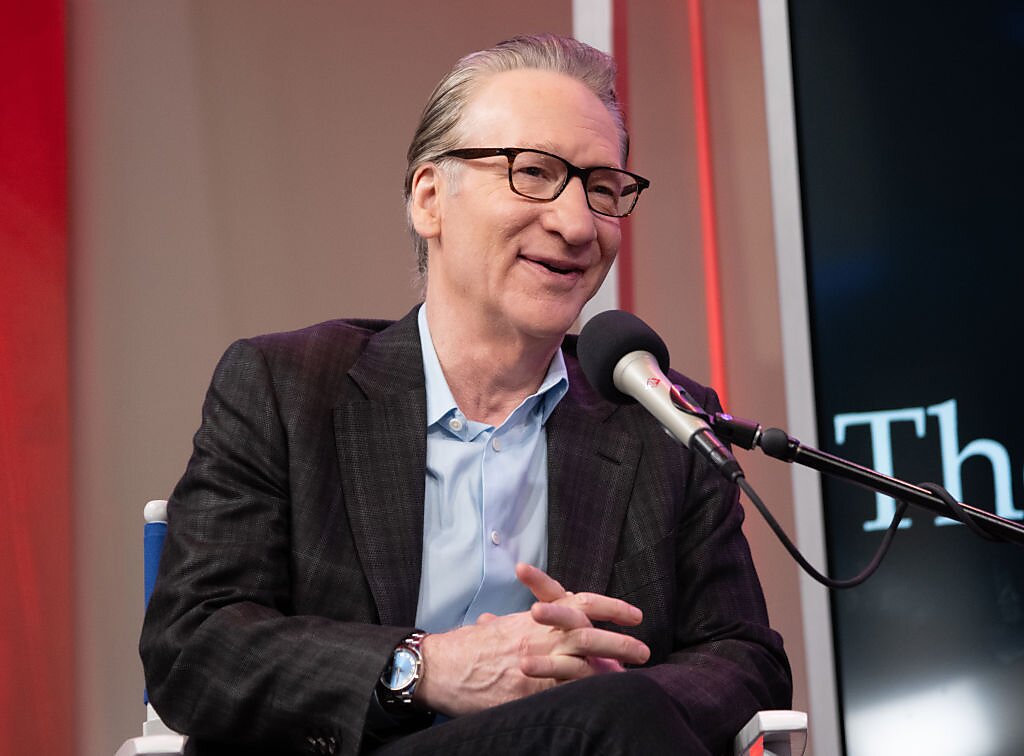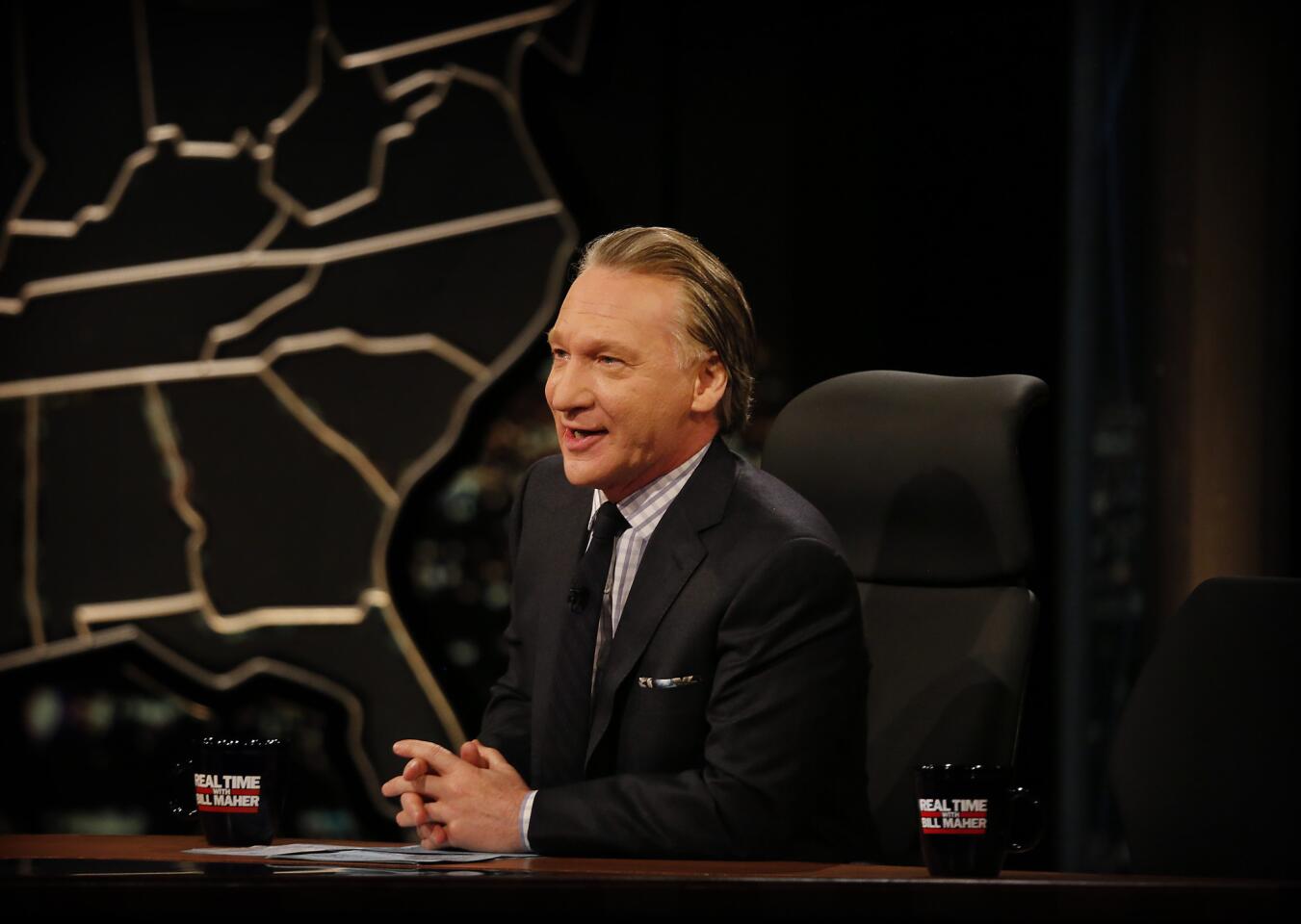There will be no panel debates, no “New Rules,” and no pointed monologue from Bill Maher this Friday night. After a busy few months of political fireworks, Real Time with Bill Maher is taking a brief break — one of its few this fall season.
HBO confirmed that no new episode will air on Friday, October 10, with the network instead programming War for the Planet of the Apes during Maher’s usual 10 p.m. time slot. CNN, which carries edited rebroadcasts of Real Time on Saturdays, will also fill the gap with a new episode of The Whole Story with Anderson Cooper at 8 p.m.
For Maher fans, the pause is short-lived. The long-running late-night series is scheduled to return Friday, October 17, with a new slate of guests and its signature mix of politics, culture, and confrontation.
Still, the brief absence offers an excuse to reflect on what Real Time represents — and how it’s managed to endure for more than two decades in an ever-changing media landscape.
The Longest Political Conversation on Television
Real Time with Bill Maher premiered in February 2003, at a time when cable television was entering its golden age of opinionated hosts. The show evolved directly from Maher’s previous series, Politically Incorrect, which ran for nine seasons on Comedy Central and later ABC.
When ABC canceled that show in 2002 after Maher made controversial remarks about U.S. foreign policy, HBO swooped in — offering the comedian something he’d never had before: total freedom.
The result was Real Time, a hybrid of talk show, news panel, and comedy hour that became a Friday-night institution. The format — a short topical monologue, a one-on-one interview, a panel of guests from across the political spectrum, and Maher’s closing “New Rules” — has remained virtually unchanged for 22 years.
The consistency is part of the appeal. While other talk shows chase viral moments, Maher’s program continues to prize old-fashioned conversation — however heated it may get.
“Bill’s show feels like the last bastion of televised debate,” says media historian Robert Thompson. “You don’t have to agree with him — and plenty of people don’t — but he’s created a space where disagreement is still allowed.”
The Numbers Behind the Legacy
Now in its 22nd season, Real Time is HBO’s longest-running current series and its third-longest overall, trailing only Inside the NFL (31 seasons from 1977–2008) and Real Sports with Bryant Gumbel (which ended in 2023 after 29 seasons).
Over that span, the show has earned twelve Emmy nominations, a Peabody Award nomination, and countless viral clips that circulate across social media each week.
Maher’s “New Rules” segment — introduced in the show’s first episode — became such a fixture that it spawned two bestselling books, New Rules (2005) and The New New Rules (2011). The segment’s satirical commandments, blending humor with exasperation, often distill Maher’s worldview better than his monologues do.

“I don’t want to tell people what to think,” Maher said in a recent interview. “I want them to think at all.”
Staying Power in a Post-Late-Night Era
While most network late-night shows have struggled in the streaming age, Maher’s formula remains surprisingly resilient. On HBO, Real Time isn’t tethered to the 11:35 p.m. slot or the demands of nightly production. Instead, it has carved out a niche as a weekly town hall for the politically curious, airing unfiltered discussions that would never make it onto broadcast television.
The show’s pacing — more considered than cable news, less scripted than traditional comedy — helps it straddle the line between entertainment and commentary.
“People come to Real Time because it’s unpredictable,” said former HBO executive Casey Bloys. “You might get a senator, a stand-up comic, and a YouTuber all on the same panel. The friction is the point.”
And while Maher’s detractors accuse him of courting controversy for its own sake, the model continues to attract steady ratings and an engaged fanbase. HBO rarely releases viewership data, but Nielsen estimates the show’s linear audience averages between 1.5 and 2 million weekly viewers — a strong figure for premium cable — with digital clips reaching millions more on YouTube and X.
A Polarizing Presence
Of course, longevity doesn’t mean universal love.
Maher’s evolution from self-identified liberal firebrand to independent provocateur has made him one of the most polarizing figures in media. He’s been criticized for his commentary on religion, gender identity, and political correctness — often accused of sounding more like a cranky contrarian than a comedian.
Yet it’s precisely that unpredictability that keeps Real Time relevant. Maher invites criticism rather than shying away from it, using his HBO platform to question not just conservatives but also the dogmas of the left.
In recent seasons, his guests have included everyone from Ron DeSantis to Alexandria Ocasio-Cortez, and his audience remains as ideologically mixed as his panel.
“He’s a curmudgeon, but he’s a consistent one,” said cultural critic Dana Stevens. “You know you’ll hear something you disagree with, but you’ll also laugh and think. That’s rare now.”
HBO’s Enduring Anchor
For HBO, Real Time remains a cornerstone — one of the few programs that draws viewers to the network week after week in a streaming-dominated era.
The show’s adaptability has been key to its survival. In 2020, when the pandemic shut down production, Maher began broadcasting from his backyard, complete with a laugh track of barking dogs. Fans embraced the absurdity, and HBO’s digital engagement actually increased.
“Even when he was literally yelling jokes at plants, people kept watching,” joked comedian Bill Burr on a recent panel. “That’s how you know he’s bulletproof.”
Maher has also adjusted to the streaming era by embracing short-form distribution. Clips from Real Time often trend on YouTube within hours of the episode airing, introducing younger audiences to segments they might never watch live.
A Show That Reflects Its Host
If Real Time has changed little over two decades, it’s because its DNA is inseparable from Maher himself.

From the opening monologue to the final “New Rule,” the show mirrors his worldview: cynical yet curious, skeptical yet hopeful, equal parts smug and self-aware.
He’s often joked that Real Time is less a talk show than “group therapy for people who watch too much news.”
That dynamic has kept the show fresh even as other political talk series have flamed out. Where most late-night hosts play to their base, Maher courts disagreement — sometimes gleefully.
“He’ll bring on a guest who disagrees with him and then let them talk,” said former Politically Incorrect producer Scott Carter. “That’s his secret weapon. You can’t cancel a conversation.”
Looking Ahead
Though HBO has not confirmed how long Maher plans to continue hosting, insiders say there are no immediate plans for him to step down. At 68, he remains one of the few television hosts who writes his own monologue and moderates his own panels each week.
The current season — the show’s 22nd — has been one of its most-watched since before the pandemic, buoyed by the return of in-studio audiences and a relentless news cycle.

Maher himself has hinted that he’s nowhere near done. “I don’t know what retirement looks like,” he told Variety. “As long as there’s hypocrisy to point out, I’ll have a job.”
Closing Thoughts
So while Real Time with Bill Maher may be dark this week, its shadow looms long over the late-night landscape.
For all his controversies and contradictions, Maher remains one of television’s last true survivors — a comedian who turned conversation into an art form and proved that civility and sarcasm can coexist.
Next Friday, when the lights come back on at HBO’s studio and Maher takes the stage again, the world will have moved on to a dozen new debates. But for one hour, he’ll bring them all back together — laughing, arguing, and occasionally agreeing — in what might be the last great forum for real-time discourse.
Until then, the planet of the apes will have to do.







